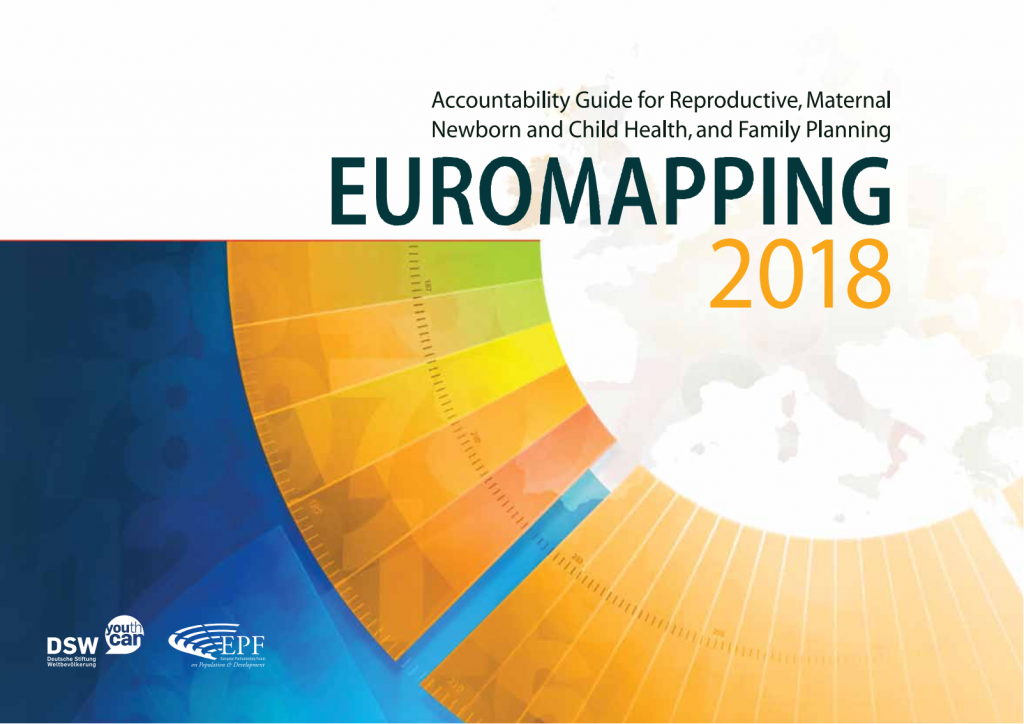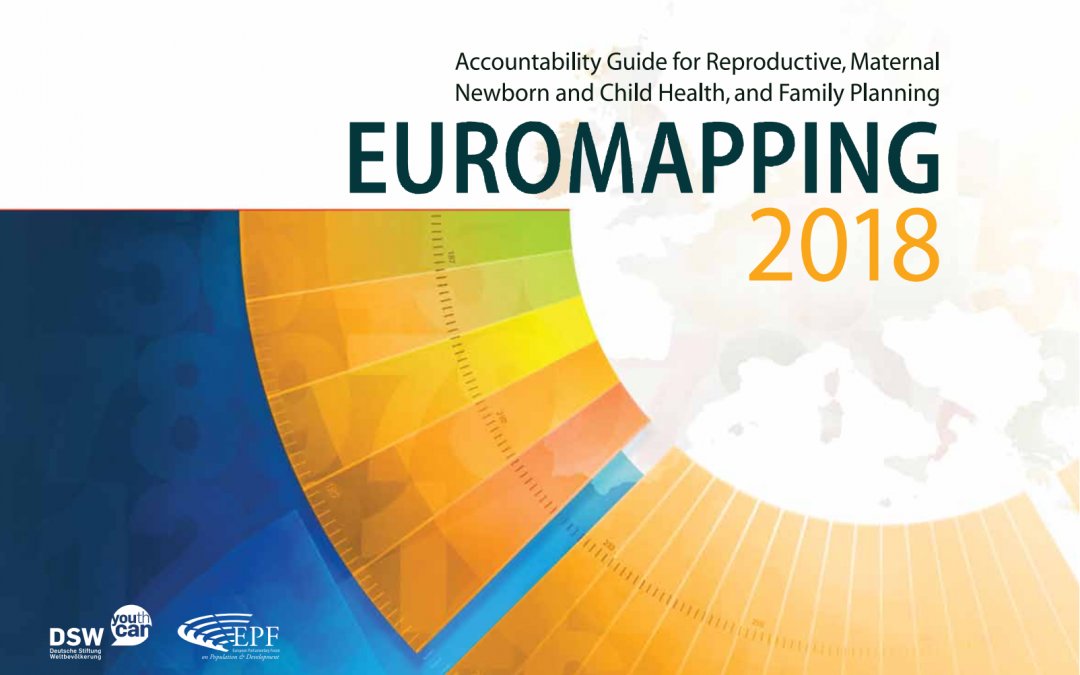 Euromapping 2018 report highlights the need for other global donors – the European Union and EU Member States – to increase their contributions to protect health of women and girls around the world.
Euromapping 2018 report highlights the need for other global donors – the European Union and EU Member States – to increase their contributions to protect health of women and girls around the world.
Brussels, August 29, 2018: The latest Euromapping 2018 report on global funding for family planning (FP) and reproductive, maternal, newborn and child health (RMNCH) highlights the US as the world’s leading donor in this field, but that data does not accurately reflect the withdrawal from this field by the Trump presidency. The reinstatement of the Mexico City Policy, better known as the Global Gag Rule, in 2017 will accelerate a decline in US funding in the coming years. It is the responsibility of other global donors in Europe and the rest of the world to step up and make sure that life-saving funding for family planning, contraception and maternal health does not disappear.
At the launch of the report in the European Parliament in Brussels today, Neil Datta, Secretary of the European Parliamentary Forum on Population and Development (EPF), whose organisation co-authored Euromapping 2018 together with Deutsche Stiftung Weltbevölkerung (DSW), raised the alarm about the over-reliance on the US as a global donor, and challenged the complacency of European donors: “The implications of the Global Gag Rule are colossal. Trump’s policy creates a vacuum of an estimated $8.8 billion of US global health assistance, meaning women and girls in about 60 low- and middle-income countries will have less access to contraception, resulting in more unintended pregnancies, and more – often unsafe – abortions.
“If other countries fail to fill this void, the restrictions will cause easily preventable maternal deaths, and cut services linked to newborn, infant and child health, including vaccinations; prevention and treatment of HIV/AIDS, malaria, and tuberculosis (TB); and nutrition programs.”
Euromapping 2018: EU needs to match development ambitions with funding
The Euromapping report tracks the annual commitments and disbursements for FP and RMNCH by a selection of 30 OECD members. Not only tracking overall spending, it also reports this funding as a percentage of a donor’s overall overseas development assistance (ODA).
The latest Euromapping 2018 report, based on 2016 OECD data, reveals that while the EU institutions together with France, Germany, and the UK rank near the top of the list for total funding, this funding still only makes up a small percentage of their overall ODA. What’s more, the EU, for example, makes up 57% of all the ODA spent by the 30 donors covered in the Euromapping report, but only 30% of all donor commitments to FP and RMNCH. This discrepancy needs to be addressed in the next EU multiannual budget, which will be negotiated over the next 18 months in Brussels.
Cecile Vernant, Head of EU office for DSW, said: “The EU has a once in a decade opportunity to put itself forward as a global leader in family planning funding. As the Euromapping report this shows, the EU support for maternal and reproductive health has been increasing. However, it’s still too low relative to the EU’s overall ODA spend, meaning that politicians need to prioritise these issues more in EU development assistance. We need to lock in these gains as part of the next multi-annual budget – and backed up by a strong strategy that centres gender equality and women’s health at the heart of the EU’s development agenda. It is not only the smart thing to do when it comes to its impact on sustainable development, but given what is happening on the other side of the Atlantic it is an urgent necessity.”
-ENDS-
Contact:
Eoghan Walsh
Communications Officer, Deutsche Stiftung Weltbevölkerung (DSW)
T: +32 (0) 2 504 90 66 | Mob: +32 (0) 485 399 443
eoghan.walsh@dsw.org | www.dsw.org/
Sarah Bedson
Communications and Outreach Officer, EPF
T: +32 (0)2 500 86 51
sarah@epfweb.org | www.epfweb.org
Notes to the Editor
- Euromapping is an annual publication that analyses the latest updated data available (2016), tracking Organisation for Economic Co-operation and Development (OECD) Development Assistance Committee (DAC) donors’ contributions to reproductive, maternal, newborn, child health (RMNCH) & family planning (FP), as part of their official development aid (ODA). It thus highlights and ranks global efforts for sustainable development, and constitutes a transparency and accountability tool on donors’ development assistance in these crucial areas. Download the Euromapping 2018 report here.
- The European Parliamentary Forum on Population and Development (EPF) is a network of members of parliaments from across Europe who are committed to protecting the sexual and reproductive health of the world’s most vulnerable people, both at home and overseas. We believe that women should always have the right to decide upon the number of children they wish to have, and should never be denied the education or other means to achieve this that they are entitled to.
- Deutsche Stiftung Weltbevölkerung (DSW) is a global development organisation that focuses on the needs and potential of the largest youth generation in history. We are committed to creating demand for and access to health information, services, supplies, and economic empowerment for youth. We achieve this by engaging in advocacy, capacity development, and reproductive health initiatives, so that young people are empowered to lead healthy and self-determined lives. With our headquarters in Hannover, Germany, DSW operates two liaison offices in Berlin and Brussels, as well as maintaining a strong presence in Ethiopia, Kenya, Tanzania, and Uganda. DSW also advocates for investment in research and innovation to fight poverty-related and neglected tropical diseases.

